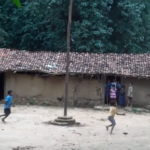This summer, water woes of a far-flung rural district in the Indian state of Maharashtra found an unlikely supporter in the megacity Mumbai. A group of 20 citizens from Mumbai, aka the financial capital of India, reached out to the drought-stricken district of Marathwada. While Marathwada was rationing its water, Mumbai had no idea that a region in their state was in such abysmal water crisis.
Beed and Latur districts, where the youth concentrated their efforts, fall under Marathwada region, one of the worst sufferers in India due to the scanty rainfall in 2016. Although the 19 million people, mostly farmers of the region, have been battling acute water shortage since the four years, the drought of 2015 deteriorated the situation further to apocalyptic heights. "I've seen wells dry up in Marathawada. It is important for the society, political parties and the government to resolve the water crises in Beed and Latur," Subbarao tells Zulekha Syed, Community Correspondent in Mumbai. Even as the Maharashtra government announced to provide water in the region through trains, t
Even as the Maharashtra government announced to provide water in the region through trains, the good Samaritans hailing from Vikhroli, Mumbai thought of a simple but effective gesture for the Marathwada residents - one litre of water from one house for one person in Marathawada. "We went to houses requesting just a bottle of water. When people asked our purpose, we explained them the situation in Marathwada where our fellow citizens are suffering," says Subhangi. Through sustained efforts for the entire week, the group managed to gather 1.5 lakh or 15 million litres (almost 40,000 gallons) of water.
With trucks laden with water, the group travelled almost 400 kms to Marathwada where they distributed clean drinking water to the parched residents of Beed and Latur.
The crop damage and rising debts in the region had resulted in more than 400 farmer suicides, up until May 2016. "In 2015, the collective figure of suicides in all eight districts of Marathwada stood at 1,130 – three suicides every day and throughout the year. In past 16 months, 1,548 distressed farmers have been reported dead in the Marathwada region," reports an Indian daily.
Community correspondent Zulekha Sayyed reports from Maharashtra for Video Volunteers.
Community Correspondents come from marginalised communities in India and produce videos on unreported stories. These stories are ’news by those who live it.’ they give the hyperlocal context to global human rights and development challenges. See more such videos at www.videovolunteers.org. Take action for a more just global media by sharing their videos and joining in their call for change. we could hyperlink to some VV pages, like our take action page.
Fighting for Change: The Story of Bihar-Based Journalist Amir Abbas
Inspiration can come from many sources, but one of the most powerful is seeing someone walk the path before you. Our Community Correspondent, Syed Amir Abbas found his inspiration in Stalin K., the founding director of Video Volunteers. “I met Stalin at VV’s national meet in 2017 and I...
The torch bearer of rights for marginalized tribals of Odisha
If you ask Video Volunteers’ Community Correspondent Bideshini Patel to rate her childhood on a scale of 1-10, she would probably give it a negative marking due to the neglect and abuse she faced. But if you ask her to evaluate her professional life as an impactful journalist, resolving basic...

